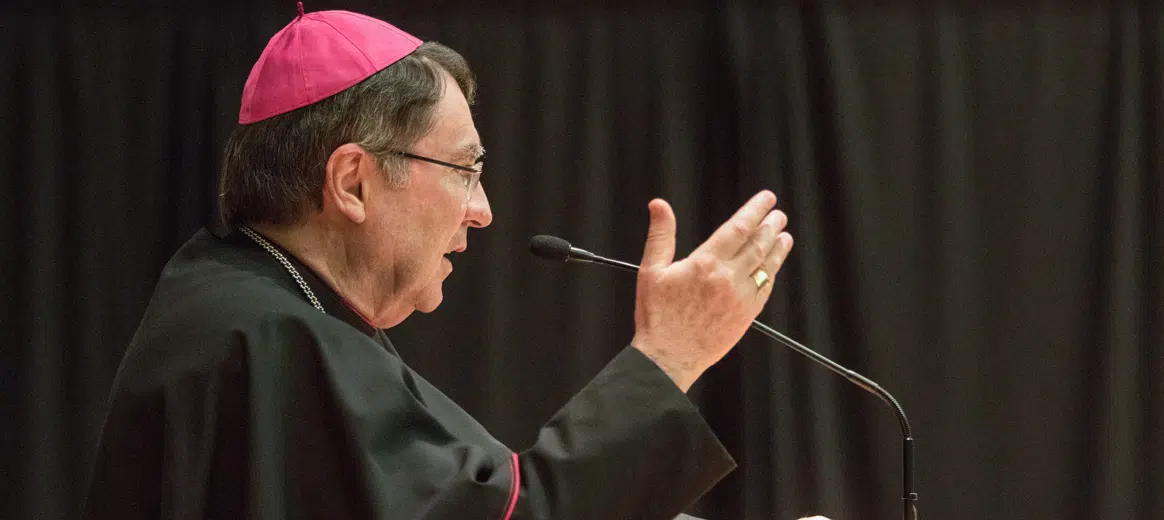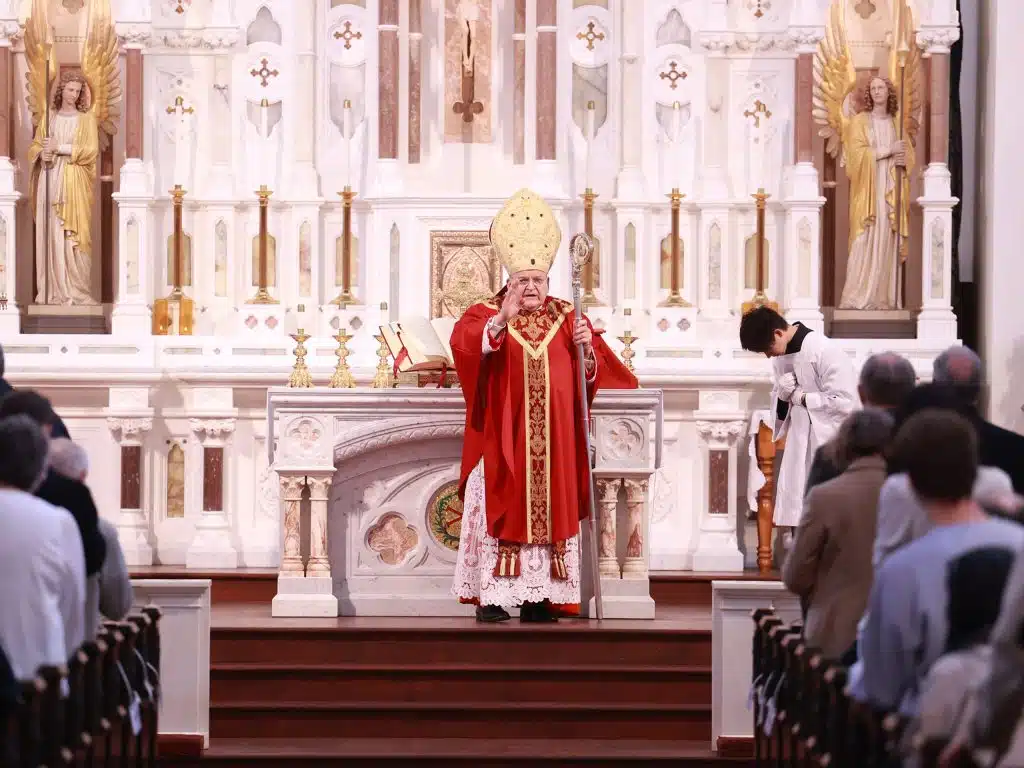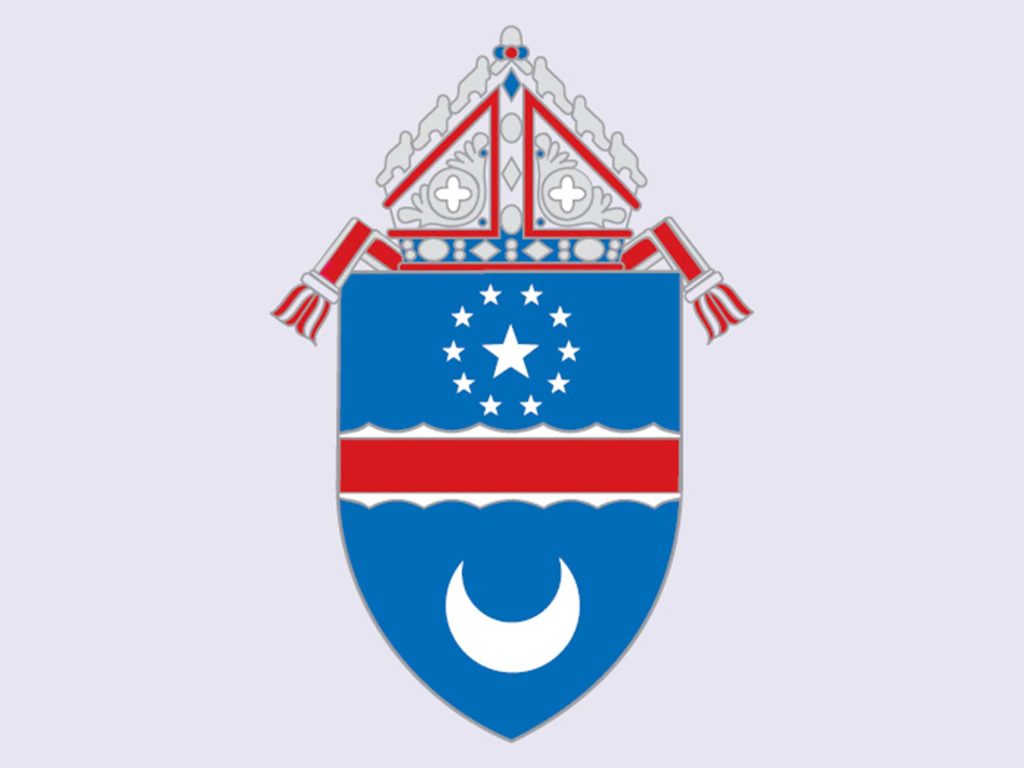EMMITSBURG, Md. — In a discussion with Mount St. Mary’s Seminary
candidates for the priesthood as well as seminary and university faculty and
leaders March 8, Archbishop Christophe Pierre, apostolic nuncio to the United
States, provided an in-depth examination of the need for a new evangelization.
“A new evangelization … is the core of the new missionary spirt
that must take hold of the church,” said Archbishop Pierre. “Central to this
theme of evangelization is a lived faith that must be learned and deepened
constantly amid a changing landscape, marked not only by a change in
demographics but also a noticeable increase in the number of baptized
Catholics, especially those under age 30, who identify as having no religion.
The need for this missionary spirit is becoming more urgent as challenges in
transmitting the faith grow in an increasingly secularized world.”
In quoting Pope Francis who said, “Today we are not living in an
age of change so much as a change of age,” Archbishop Pierre stressed the
necessity of today’s priests to see themselves as missionary disciples. “Today,
the church needs joyful, missionary disciples — heralds of the Good News,” he
said. “It is particularly necessary for the priests today to understand
themselves as missionary disciples.”
Archbishop Pierre dedicated a major portion of his speech to the
formation of priests, evoking Pope Francis’ description of seminarians as
“uncut diamonds, to be formed both patiently and carefully, respecting the
conscience of the individual, so that they may shine among the People of God.”
He noted that Mount St. Mary’s Seminary, which he called a “venerable
institution,” has been responsible for “nurturing and guiding priestly
vocations for more than two centuries.”
As Pope Francis’ representative in the United States, he assured
the audience of the pope’s “spiritual closeness and affection.”
In reviewing the new Ratio Fundamentalis, titled
“The Gift of the Priestly Vocation,” Archbishop Pierre emphasized the focus on
future priests as compassionate, merciful pastors. “The future priest is not
merely a functionary of the sacred or a manager of a business, but is a pastor,
called to have the same inclusive heart of Christ and to be, therefore,
compassionate and merciful toward all,” he said.
“He must have the ability to see where mercy is needed and the
healthy zeal to make himself readily available to apply the healing balm of
God’s mercy with the love of a genuine father and pastor,” the archbishop said.
Catholic education, as outlined in the new constitution, “Evangeli Gaudium,” will only be successful
if it inculcates a sense of humility before God before helping students acquire
the convictions that “structure and strengthen the intelligence and illuminate
the will,” the apostolic nuncio stressed. “The best theology is one done on
one’s knees,” he said. “Kneeling before God, with an open heart and an open
mind, one learns amid the complexities of life and culture how to discern the
path of truth that leads to authentic joy.”
Archbishop Pierre returned to the theme of the need for a new
evangelization. “Against the new horizon of a changing, highly secularized,
globalized and technologically driven culture that often expresses itself in
post-Christian or anti-Christian fashion, there is a need for a renewal in
ecclesiastic studies so that the church may be both a missionary church and an
effective missionary church,” he said.
Catholic education institutions, including universities and
seminaries, are uniquely positioned to study and address today’s epochal issues
because they are attentive to differences in culture and social processes,
according to Archbishop Pierre.
“The ‘rarified air’ of the seminary cannot be one that isolates
or quarantines seminarians from the globalized and polarized world in which we
live,” he said. “Rather, the ‘rarified air’ of the seminary should be one in
which the rich cultures of a universal church in a globalized world are
experienced, offering challenges and opening new horizons.”
Klinger is director of communications at Mount St. Mary’s University.



